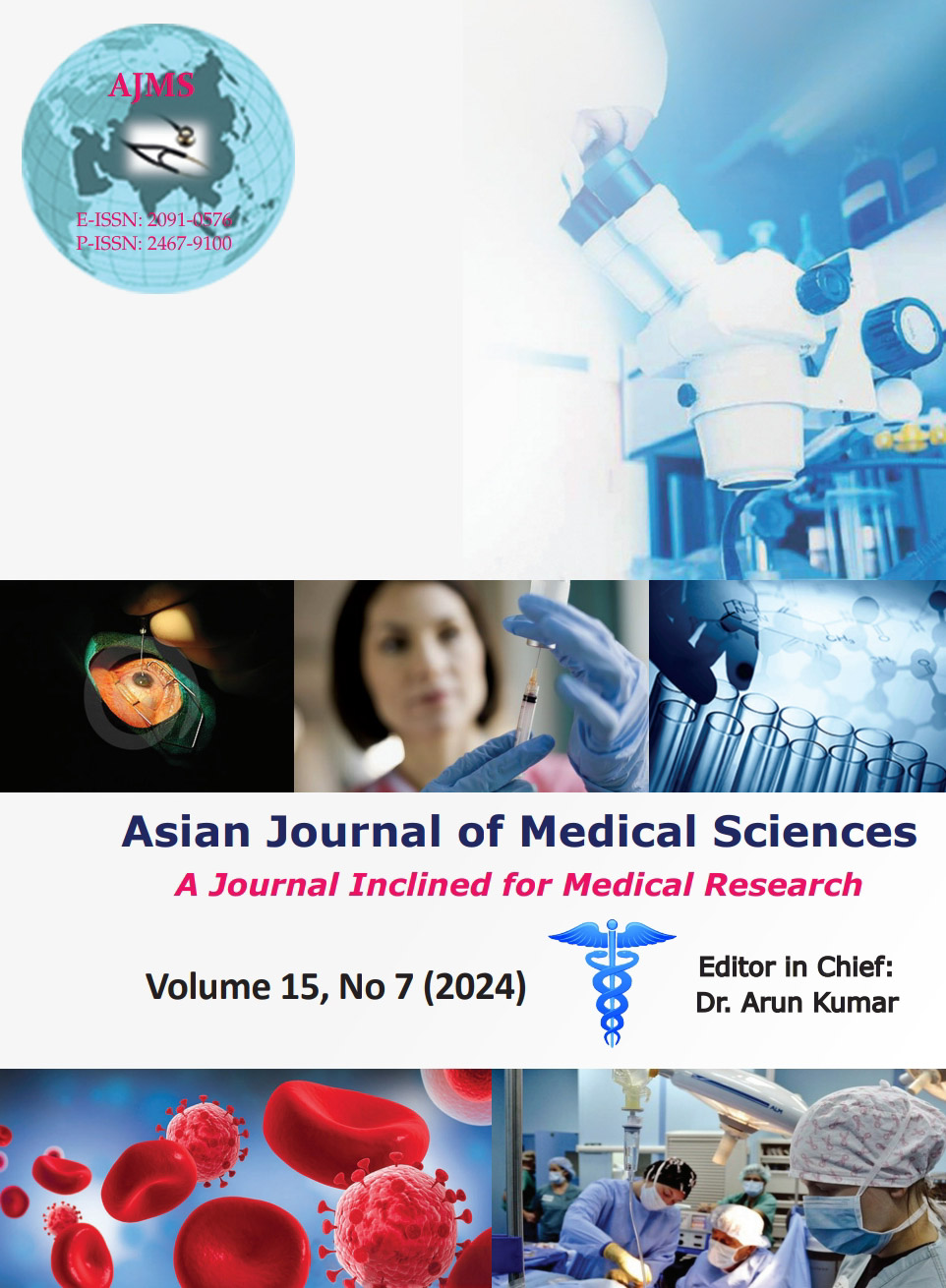Stress hyperglycemia as a prognostic indicator of the clinical outcome in patients with ischemic stroke
Keywords:
Stress hyperglycemia; Ischemic stroke; Prognosis; Functional recoveryAbstract
Background: Stroke is gaining worldwide importance as the focus now shifts to non-communicable diseases. According to the World Health Organization, over 15 million people, equating to one in every 400 people, suffer stroke worldwide per year. There are many factors which affect the outcome of stroke – artery involved, size of the infarct, associated co-morbidities, age of the patient, collateral blood supply, and many more. Among those one of the factors proposed is stress hyperglycemia (SH).
Aims and Objectives: The aims and objectives of the study are to identify the occurrence of SH in patients admitted with ischemic stroke and to assess the relation of SH in clinical outcomes in patients with ischemic stroke.
Materials and Methods: The prospective study was conducted on patients admitted to medical college hospitals affiliated with VIMS, Ballari. All patients age more than 18 years presenting with acute-onset ischemic stroke were taken into the study, and GRBS was done at presentation and at every 6th hourly for 48 h to identify hyperglycemia. Hemoglobin A1c was done to rule out overt diabetes and previously undiagnosed diabetes mellitus. Clinical outcome and functional recovery using the modified ranking scale (MRS) were done at the time of admission, at discharge, and at every month for 3 months.
Results: Out of 150 patients, 63 (42%) of them had SH. The majority of patients belong to 60–69 years age group. The mean age of patients with SH was 60.2 years and that of patients without SH was 57.75 years. MRS score at the time of admission and during follow-up was higher in SH patients than no SH patients (P<0.001). Patients with SH were more prone to urinary tract infection (n=19 [SH]; n=8 [no SH] P<0.001), bed sores (n=10 [SH]; n=18 [no SH] P<0.008), lower respiratory tract infection (n=30 [SH]; n=34 [no SH], P=0.000), and duration of hospital stay (P=0.000). Delay in presentation to a health facility after the onset of stroke symptoms was found to be a significant contributing factor in SH patients (P<0.003).
Conclusion: The prevalence of SH in ischemic stroke is high. Patients with SH had longer duration of hospital stay, high mortality rate, higher incidence of complications, and poor functional recovery.
Downloads
Downloads
Published
How to Cite
Issue
Section
License
Copyright (c) 2024 Asian Journal of Medical Sciences

This work is licensed under a Creative Commons Attribution-NonCommercial 4.0 International License.
Authors who publish with this journal agree to the following terms:
- The journal holds copyright and publishes the work under a Creative Commons CC-BY-NC license that permits use, distribution and reprduction in any medium, provided the original work is properly cited and is not used for commercial purposes. The journal should be recognised as the original publisher of this work.
- Authors are able to enter into separate, additional contractual arrangements for the non-exclusive distribution of the journal's published version of the work (e.g., post it to an institutional repository or publish it in a book), with an acknowledgement of its initial publication in this journal.
- Authors are permitted and encouraged to post their work online (e.g., in institutional repositories or on their website) prior to and during the submission process, as it can lead to productive exchanges, as well as earlier and greater citation of published work (See The Effect of Open Access).




